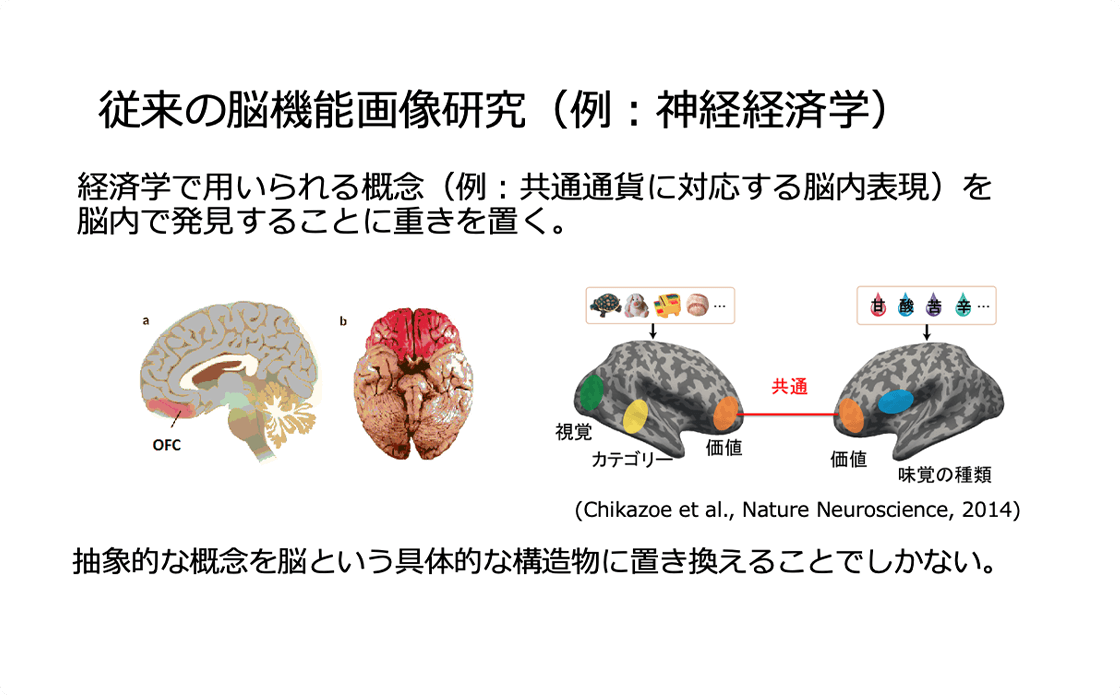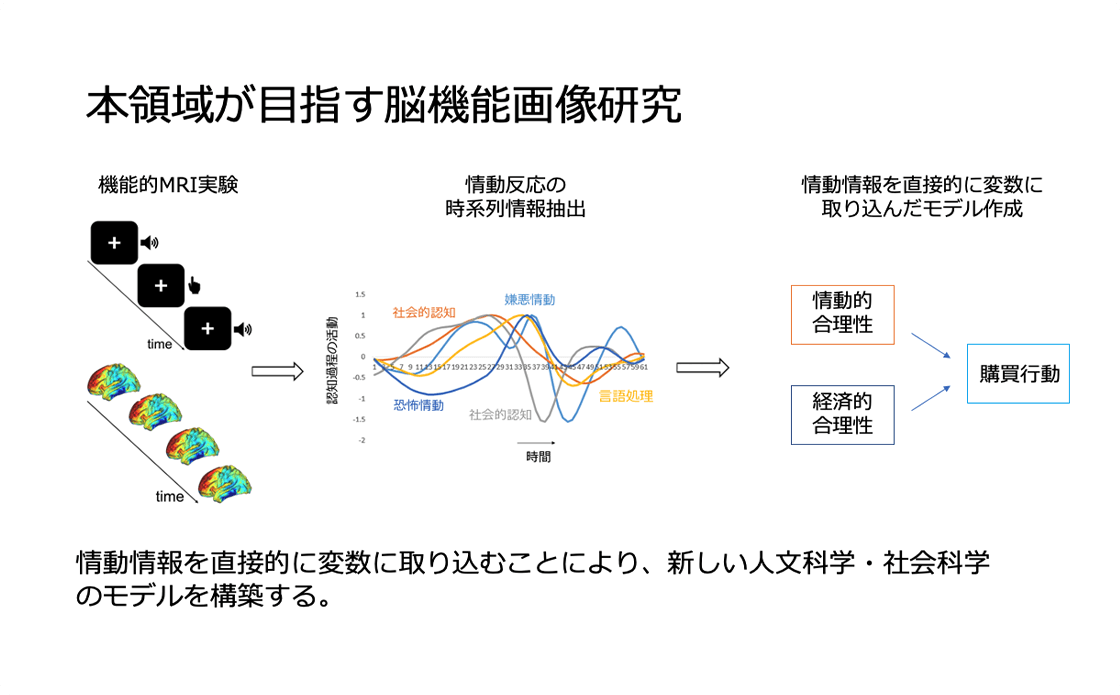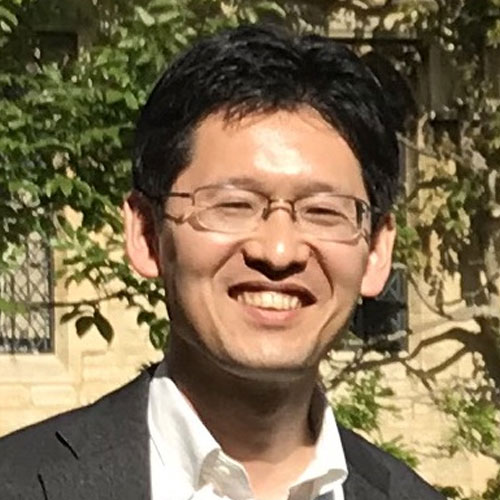About
- TOP
- About
Area Overview


Academic disciplines in the humanities, such as psychology, linguistics, economics, and aesthetics, construct models of mental processes based on observations and records of human behavior. When developing such models, it is crucial to understand the impact of affect on human behavior. However, models that directly incorporate affective information have been challenging to construct due to the difficulty of accurately measuring “how an individual feels”.
fMRI is a technique to measure the brain activity of living humans, known to be safe without concerns of radiation exposure. Due to recent advancements in analytical techniques using machine learning, it is now possible to estimate an individual's emotional state by observing their brain activity (Chikazoe et al., 2014; Pham et al., 2021). However, there are many technical difficulties in the analytical processes and few linguistic, economic, and aesthetic models have successfully incorporated affective information estimated from brain activity.
In this research area, Chikazoe (Araya Inc., National Institute for Physiological Sciences), an expert in fMRI research using machine learning, aims to construct a new academic framework that interprets language, economics, and art through the perspective of affect. He is assisted by Professor Daichi Mochihashi (Institute of Statistical Mathematics), who specializes in natural language processing; Professor Yasutora Watanabe (University of Tokyo), an expert in microeconomics; and Professor Tomohiro Ishizu (Kansai University), a specialist in aesthetic research.
Member
-
A01
Chikazoe group
Investigating the integrated calculation process of ambivalent value information using fMRI
-
A02
Mochihashi Group
The neuroscience of literary arts that evoke affect
-
A03
Watanabe Group
Estimating affective influences through econometric structural models
-
A04
Ishizu Group
Cognitive neuroscience research on aesthetic experiences that step beyond pleasure/displeasure and their psychological effects
A01
Chikazoe group
Investigating the integrated calculation process of ambivalent value information using fMRI
-

Representation of the research area
Junichi Chikazoe
Team Leader, Brain Business Research and Development Office, ALAYA Co.
Associate Professor, Biological Functional Information Analysis Laboratory, Institute of Physiological Research -

Koji Jimura
Faculty of Computer Science, Gunma University
Professor -

Satoshi Kodama
Graduate School of Literature, Kyoto University
Associate Professor
A02
Mochihashi Group
The neuroscience of literary arts that evoke affect
-

Daichi Mochihashi
Associate Professor, Mathematical and Inferential Research, Institute of Statistical Mathematics
-

Ichiro Kobayashi
Ochanomizu University
Faculty of Basic Ethics and Frontier Sciences
Professor -

Yohei Ozeki
Lecturer, Department of Language and Information Sciences, Graduate School of Arts and Sciences, The University of Tokyo
Visiting Researcher, RIKEN Centre for Integrated Research on Innovative Intelligence -

Akira Utsumi
Professor, Department of Computer Science, Graduate School of Information Science and Technology, University of Electro-Communications
A03
Watanabe Group
Estimating affective influences through econometric structural models
-

Yasutora Watanabe
Professor, Graduate School of Economics and Graduate School of Public Policy, University of Tokyo
Director, University of Tokyo Economic Consulting Ltd. -

Yutaka Kayaba
The University of Tokyo
Graduate School of Economics
Lecturer -

Kosuke Uetake
Associate Professor of Marketing, Yale University School of Management
-

Kohei Kawaguchi
The Hong Kong University of Science and Technology
Business School
Faculty of Economics
Assistant Professor
A04
Ishizu Group





